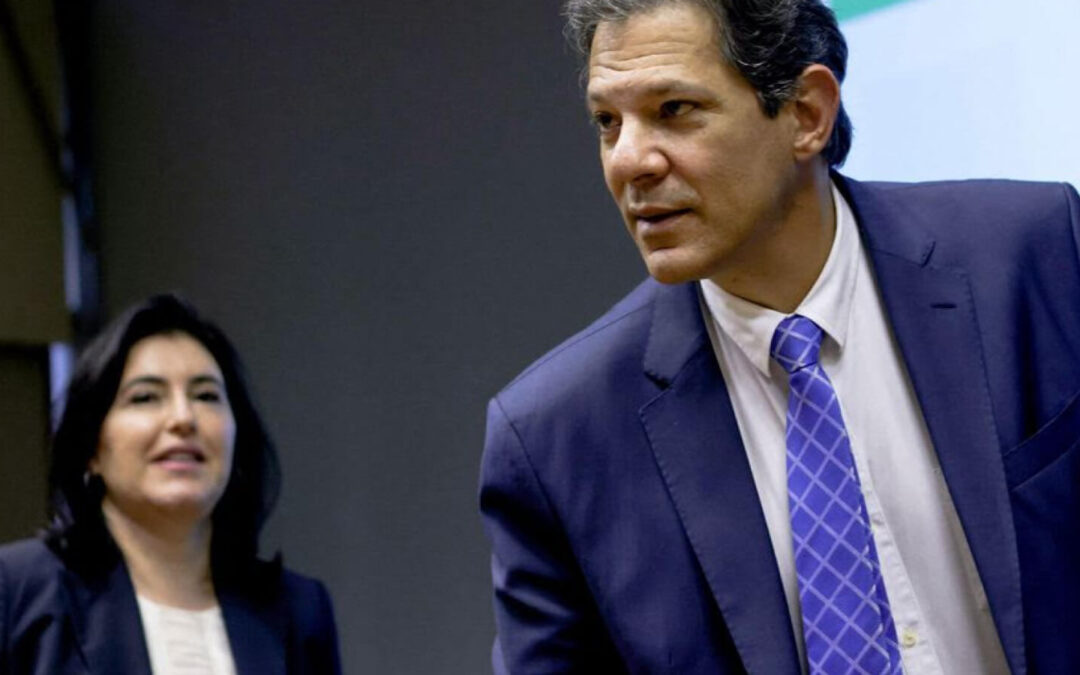BRASÍLIA – All federal government contracts with amounts above BRL 1 million necessarily go through a fine-tooth comb by the ministries for revision, renegotiation and even extinction.
In the economic team, the measure is considered the first step towards a broad program of periodic review of expenditures and public policies, the spearhead of a budgetary reform to improve the efficiency of government expenditures together with the new fiscal framework that will replace the expenditure ceiling (the current rule, which links expenditure growth to inflation).
Internally, there is talk of a kind of “mini-spending review”, as economists call the practice of governments in advanced countries to monitor and evaluate public policies to see if they are yielding results.
The measure, which is part of the Haddad fiscal adjustment plan announced on Thursday, the 12th, however, already causes apprehension by companies, especially in the areas of infrastructure and civil construction, which asked for an upward revision of contractual values after the Ukrainian War and an increase in inputs.
Contracts may be reviewed and renegotiated with the aim of increasing the Union’s investment capacity. Contract values may be reduced “by agreement between the parties”. And there may be “suppression of a quantitative portion of the contractual object”.
These two points are provided for in interministerial decree No. 1 of the ministries of Farm, Planning and Managementpublished in the Official Gazette this Friday, the 13th, but were not clarified by the members of the economic team who participated in the announcement of the government’s adjustment package of up to R$ 242.7 billion in measures to increase revenues and reduce expenses.
The ordinance says that, once the need to maintain the administrative contracts has been verified, the bodies must carry out negotiations for renegotiation. “The renegotiation of administrative contracts must aim at obtaining a reduction in residual values”, says the ordinance. The norm also states that, once the “no need” to maintain administrative contracts is verified, the possibility of termination by agreement between the parties, unilateral termination or “discharge” of their validity without further extension must be evaluated.
This is one of the points of greatest concern for companies in the ordinance, according to Luis Fernando Biazin Zenid, partner in the construction and infrastructure area at DSA Advogados. “Although the text of the norm has given room for negotiation between the contracting parties, the attention on the part of the private side is due to the possibility of federal agencies determining the reduction of scope or even the termination of contracts unilaterally”, says the lawyer.
Zenid warns that one cannot forget that many Union suppliers make high investments before starting a contract, such as hiring employees and purchasing materials, which are amortized during execution.
According to him, a relevant part of the companies that have long-term contracts with the Union suffered and still suffer the effects of the period of strong inflation that occurred in recent years. The lawyer assesses that this is a measure of general effect, which could have a “drastic” effect on companies and culminate in a generalized crisis for government suppliers.
The bodies will have a period of 60 days, as of this Friday, to forward to the Council for Monitoring and Evaluation of Public Policies (CMAP) a report containing a description of the stage in which the review and renegotiation of the contracts is found. Within 180 days, they must submit a final report to the CMAP with information on the contracts that were reduced and those that were terminated.
Continues after advertising
Investors are insecure about the scope of the review. They want to know if it can also reach the concession contracts already signed during the Jair Bolsonaro government. “What is the scope? The ordinance does not respond to this”, criticizes Zenid.
In the announcement of the package, it was up to the Minister of Planning and Budget, Simone Tebet, announce this measure. She specifically cited the contracts signed during the Bolsonaro administration. “They will not cancel or cancel, but analyze. They will have power if they are going to maintain or annul it”, explained Tebet. The savings potential with this measure was not detailed, but the worksheet presented by the government foresees a total reduction of BRL 25 billion in expenses with the permanent effect of revising contracts and programs.
“Our vision is that we are making a change from a misgovernment to a government and we need everyone to make this assessment and we will support this assessment”, explained the Minister of Management, Esther Dweck, during the press conference this Thursday. “We know that some contracts have an excess and others have a shortage. And we want to improve public policies and deliver the best to the population, “she added.
The federal government also announced the expansion of the Budget Execution Board (JEO), which will now comprise the Chief of Staff and the Ministries of Finance, Planning and Management.
Photo: Adriano Machado / Reuters








